Once a company or really any organization grows to a certain size, the folks in charge can get so disconnected from how things actually work that their input is, at best, useless. However, sometimes managers pass such poorly thought out rules that they manage to produce disasters of their own making.
A netizen shared their story of malicious compliance when their boss passed a “no phones at work” rule without thinking of the consequences. So when servers went down, suddenly a minor problem became a larger mess. We reached out to the IT worker who posted the story via private message and will update the article when they get back to us.
Sometimes managers create rules that don’t really make sense

Image credits: Getty Images / Unsplash (not the actual photo)
So one IT worker maliciously complied with an office phone ban during a server outage
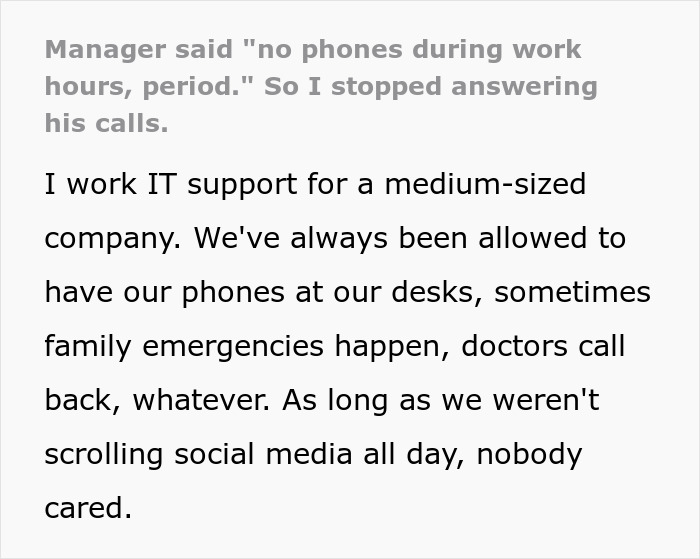
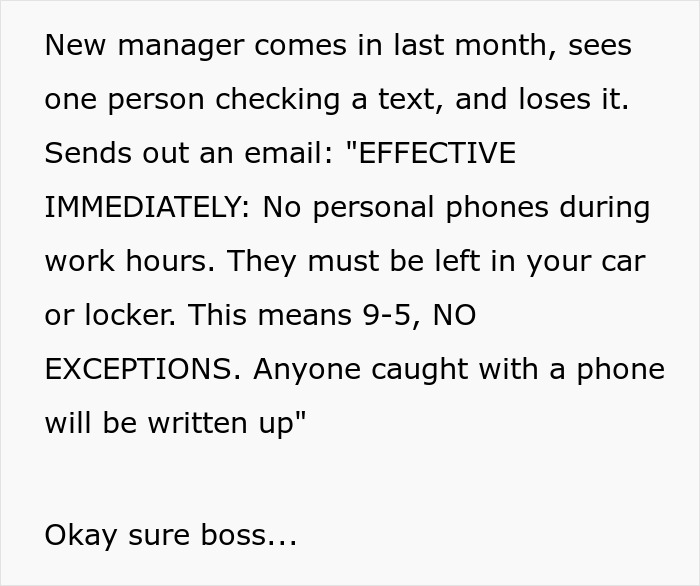
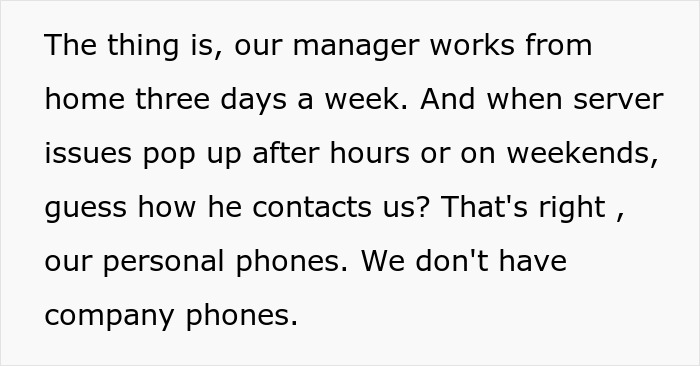
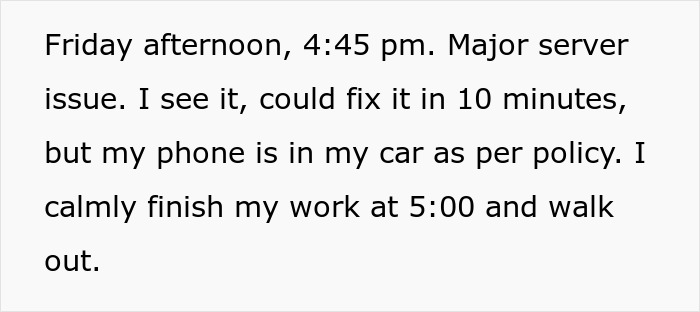

Image credits: cottonbro studio / Pexels (not the actual photo)

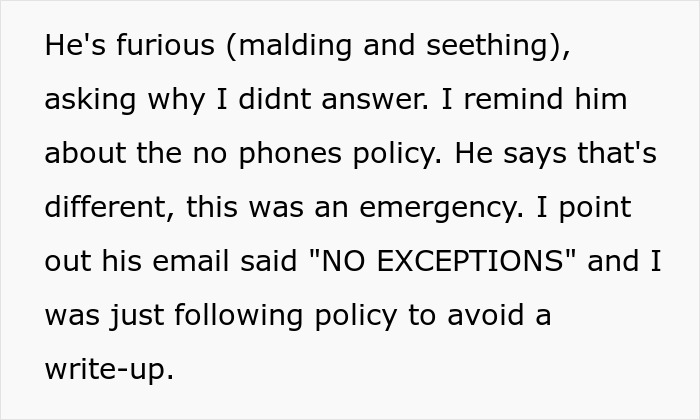
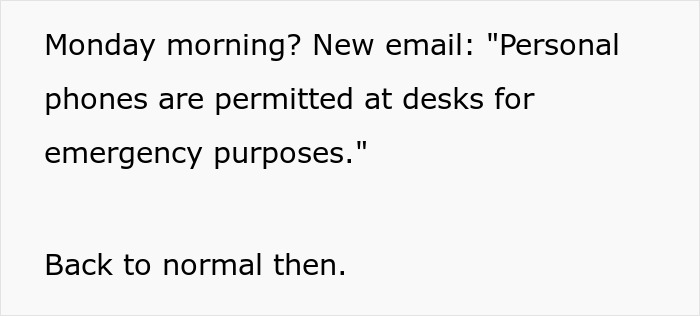
Image credits: Mother_Soraka

Image credits: Getty Images / Unsplash (not the actual photo)
Sometimes the folks upstairs feel a compilation to make bad rules
There is that strange phenomenon that happens when an individual gets promoted to a manager job: he or she is suddenly overcome by the otherworldly urge to author rules. Not problem-solution rules, of course, those would be too practical. No, too many managers seem to author rules that look as though they were dreamed up while napping with a power snooze after lunch, not necessarily for productivity but just for the purpose of informing everybody who the boss is.
Consider, for instance, the policy that no one can work at home on Fridays because “team spirit” is essential, never mind that half the team works Fridays playing a game of looking busy while actually Googling vacation rentals. Or the policy that one needs three different forms, two signatures, and a blood oath to place an order for a box of pens. Nothing increases productivity like waiting two weeks to be able to write things down.
The irony is that the majority of these regulations themselves will go on and do the very opposite of what they were intended to accomplish. The goal could be to spur structure, but instead, they get in the way, irk employees, and create brand-new problems that never before existed. Now, the employees end up spending more time trying to navigate how to circumvent the “system” than actually doing their real work.

Image credits: SEO Galaxy / Unsplash (not the actual photo)
Not all companies promote based on merit
Why is this? Partly because power is accompanied by a poisonous mix of ego and stress. Managers think that they must look as if they’re *managing*, so they tamper with that which didn’t need to be tampered with. It’s the furniture rearrangement in a burning house. Yes, the sofa is wonderful by the window, but shouldn’t we first do something about the fire?
And once such a poorly conceived policy has been implemented, it acquires a momentum of its own. Nobody is eager to be the one to question it, for fear of being labeled “not a team player.” The policy is soon memorialized in the company manual, inscribed into corporate stone tablets, and granted the kind of reverential awe generally reserved for venerable proverbs.
Ultimately, most dumb management rules don’t come from malice, they come from a weird set of desires to control, to take credit, and to be important. Too bad it has the effect of creating rules that make workers roll their eyes so hard they risk straining something. And thus, companies become bogged down not by competition, nor external threat, but by Karen in middle management insisting that all e-mails must now be composed using “Comic Sans for clarity”.
Readers thought the situation was pretty amusing

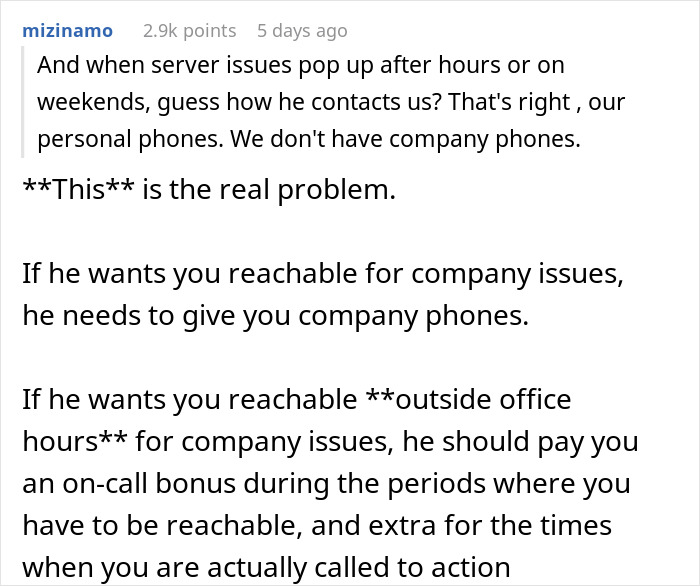

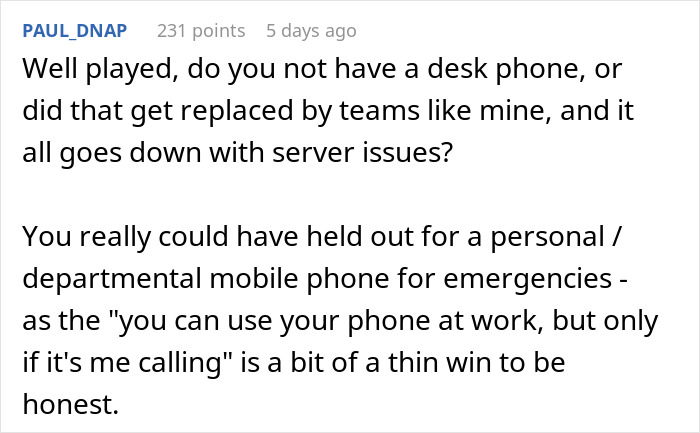

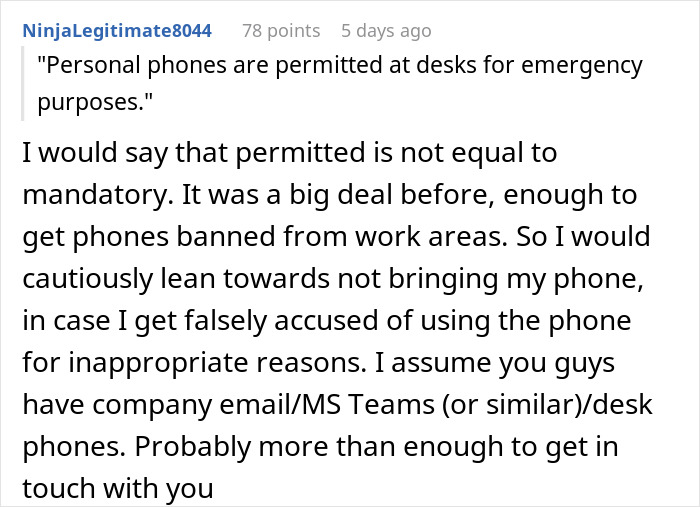








Others shared similar stories




A few thought the story had some gaps



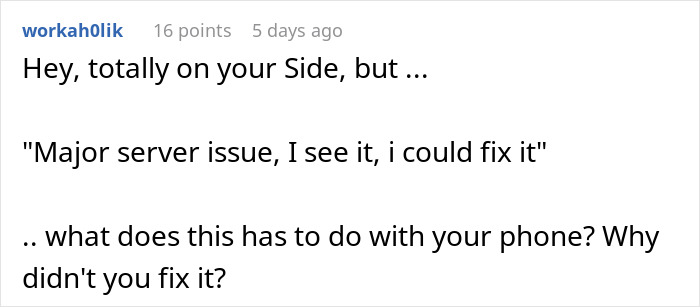


 Follow Us
Follow Us





